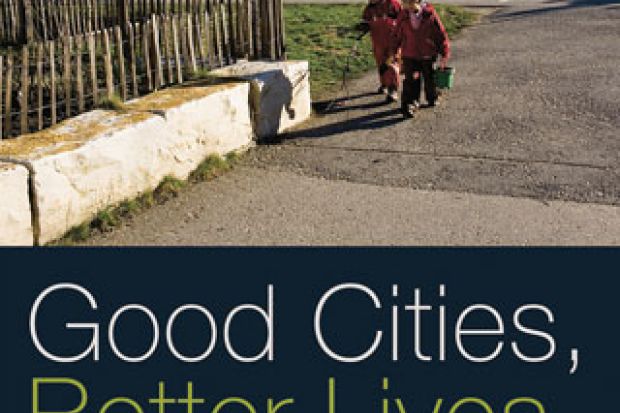Written with contributions from Nicholas Falk of the innovative planning and architecture practice Urbed, Peter Hall’s Good Cities, Better Lives is a critical, rigorous and deeply researched account of what is going on in European cities today. Hall, Bartlett professor of planning and regeneration at University College London, who was knighted in 1998, deftly weaves together political economy, geography and planning to create a continuous and highly informative narrative, contextualised within UK research culture in this area. If you have ever wondered what a Catapult is or how it connects to the rest of the UK economy and political system, then this is the book for you. The writing is admirable and rich in human interest, with tales of multitasking French mayors, scandalous research disagreements and Scandi-noir all contributing to the integrity of the whole.
The structure is clear and to the point. The first part explores “the roots of the malaise that has gripped our cities and towns”. Hall distils five basic challenges faced by cities today: rebalancing our urban economies; building new homes; linking people and places through integrated land use and transport planning; living with finite resources and the impact of climate change; and “fixing the broken machinery so as to bring public and private agencies together in the process of development and redevelopment”. These issues must be addressed, he argues, if we are to acquire “the lost art of urbanism”.
In the second part, Hall takes us on a “twenty-first-century equivalent of the Grand Tour” to experience those places that are leading the world in “creating different and better patterns of urban work and life”. His account, which could be fruitfully used as a travel guide, starts in Germany, moves to the Netherlands, France and Scandinavia, and finishes back in Freiburg – the city, says Hall, that “does it all”. In the final chapter, he reflects on how British urban centres might match or even improve upon these examples and the rather limited efforts made by our government in this direction.
Vice-chancellors take note: perhaps one of the strongest messages in Hall’s book is the vital role that universities can play in the regeneration of their home cities, and not just through the development of technology parks. In Kassel, for example, “university thinking also played a role in developing new and radical concepts of urban regeneration which shaped an entire quarter of the city”. And of his favourite city, Hall writes: “One important lesson from Freiburg’s remarkable economic growth is that investment in linking university and other research to the creation of attractive modern urban environments pays off.” He appeals for us to “recast universities to make them agents of technical and cultural change”, and I couldn’t agree more.
It pleased me to see Hall cite the University of Sheffield’s Advanced Manufacturing Park as a thoroughly positive example, and one that has bucked the trend for research cash to flow unerringly towards the “golden triangle” of Oxford, Cambridge and London. Hall’s argument is always for balance of resources. The corollary of development in one area is very often the neglect of another, as he demonstrates when tempering his idyllic account of the exemplary Hammarby Sjöstad development with a discussion of the unpopular and neglected satellites of Stockholm nearby.
Good Cities, Better Lives is in some ways a eulogy for town planning and the planning profession, once admired the world over but now greatly diminished. “Planning education needs to restore these areas of competence, through a broad-based general education coupled with deeper specialist understanding, if it is to take the lead again,” writes Hall. I can think of no better place to start than with this book.
Good Cities, Better Lives: How Europe Discovered the Lost Art of Urbanism
By Peter Hall
Routledge, 356pp, £105.00 and £34.99
ISBN 9780415840217 and 40224
Published 25 September 2013
Register to continue
Why register?
- Registration is free and only takes a moment
- Once registered, you can read 3 articles a month
- Sign up for our newsletter
Subscribe
Or subscribe for unlimited access to:
- Unlimited access to news, views, insights & reviews
- Digital editions
- Digital access to THE’s university and college rankings analysis
Already registered or a current subscriber?




